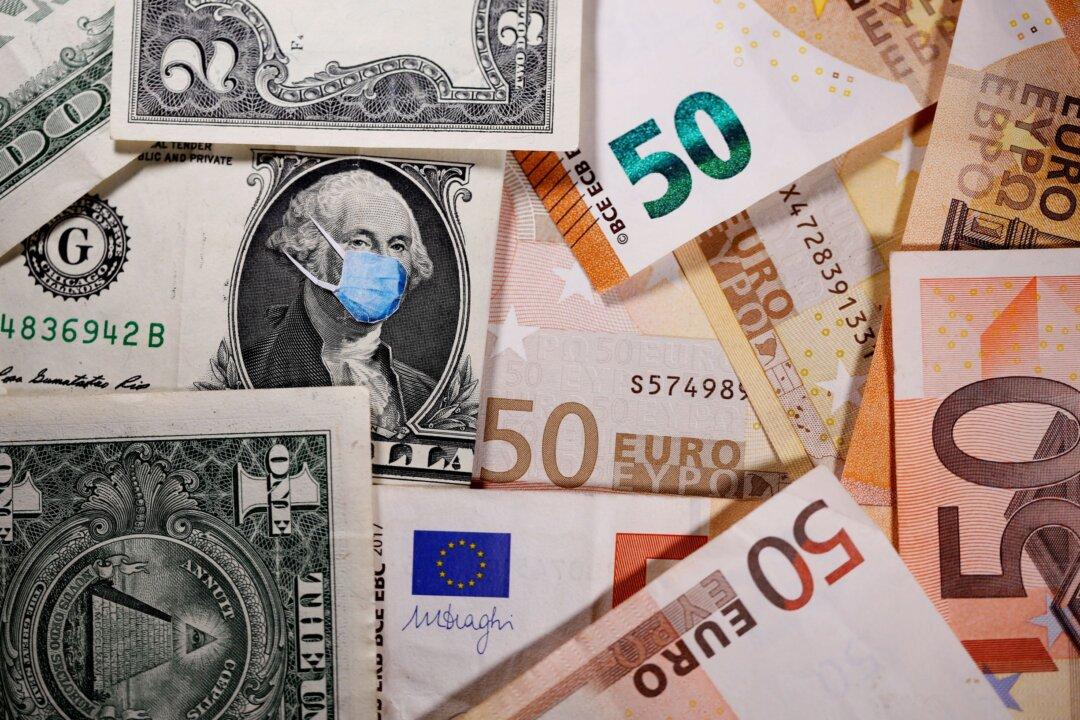LONDON—The U.S. dollar recouped some overnight losses and the euro gained for a second day on Tuesday as risk sentiment recovered partially after a selloff in global markets.
Major currencies held within well-worn trading ranges, however, as a surge in cases of the Omicron coronavirus variant forced countries to reimpose restrictions, raising concerns over the near-term economic outlook.





